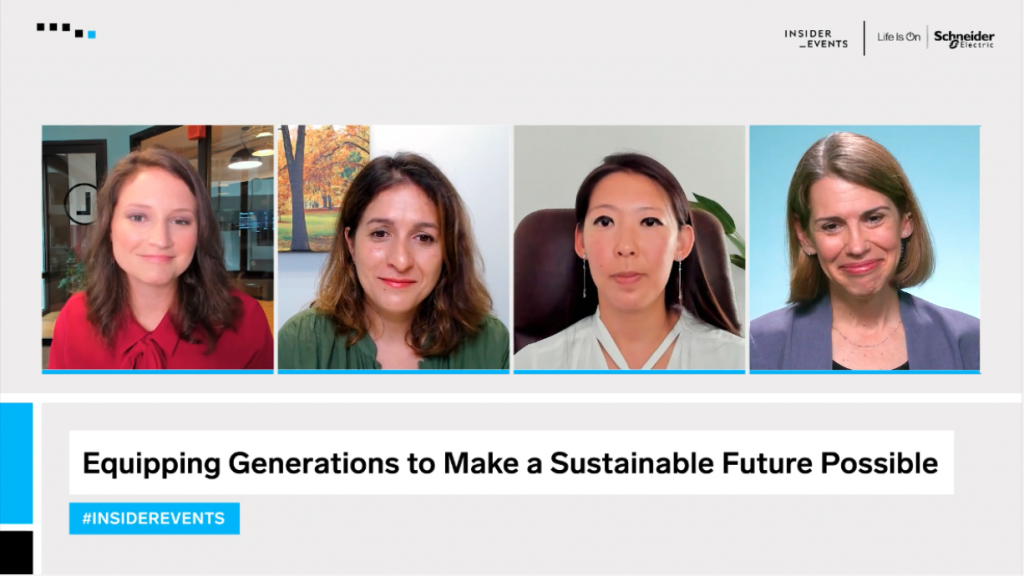- The transition to a greener economy could create millions of new jobs and demands new skills.
- IBM, Citi and Schneider Electric are training employees to carry out climate and social goals.
- The conversation was part of Insider's virtual event "Equipping Generations to Make a Sustainable Future Possible," in partnership with Schneider Electric, which took place on Tuesday, August 9, 2022.
- Click here to watch the full recording of the event.
Companies are training bankers, data scientists, electricians, construction managers, and others across the workforce to help carry out climate and social goals as demand for these employees outstrips supply.
The transition to a more sustainable economy is already underway, shifting the skills companies need and creating potentially millions of jobs around the world over the next decade. The jobs are in fields traditionally not considered green, such as fleet managers, data whizzes, or health workers, according to a recent LinkedIn analysis.
"We have a huge amount of employee demand and a huge amount of employees who need to get the training," Val Smith, chief sustainability officer at Citi, said during Insider's virtual panel, "Equipping Generations to Make a Sustainable Future Possible."
Smith said Citi sees its bankers as the frontline of its environmental and social agenda. Citi wants to reduce the greenhouse gas emissions linked to its financing activity, so bankers are working with their clients to develop climate plans and invest in solutions such as renewable energy.
People don't need to have degrees in climate science or expertise in environmental, social, and governance, or ESG, reporting standards to be part of the field, said Christina Shim, head of strategy and sustainability at IBM Sustainability Software. The company last year said it would train 30 million people globally by 2030, including students, educators and professionals, on skills including AI, blockchain, cybersecurity, and the internet of things. IBM is helping businesses integrate their ESG data across supply chains into a single platform so they can track progress and report it publicly.
"There are many ways that you can support what we need to be doing from a sustainability software perspective in my business," Shim said. "We have new curriculums and online education courses that we are investing in across the company to make sure everybody can speak to this."
Companies also have to set near, medium, and long-term goals to set up the next generation of leaders for success, said Vanessa Miler-Fels, vice president of climate and environment at Schneider Electric.
"What are the milestones in 2025, 2030? Because in 2050, none of the current executives will be in their role," she said.
Schneider manufactures products and digital tools to electrify buildings and make them more energy efficient. Miler-Fels said the company is looking for employees who can build relationships with electricians, architects, real estate developers, and construction companies and educate them about lower-carbon solutions.
But the field is broader than just reducing carbon emissions, Shim said, encouraging employers to avoid "carbon tunnel visioning."
"Climate and environment cannot be decoupled from the social piece, it cannot be decoupled from what happens to people and communities around it," Shim said.
